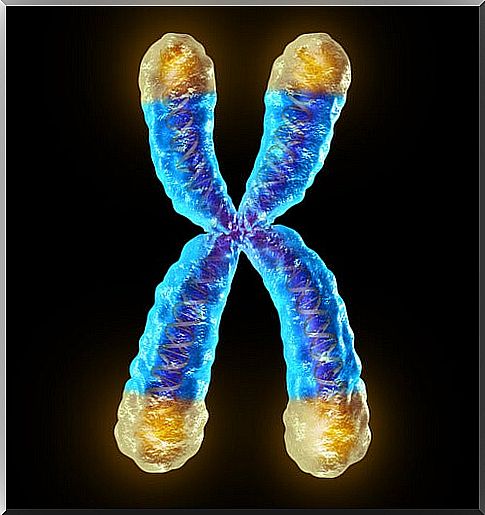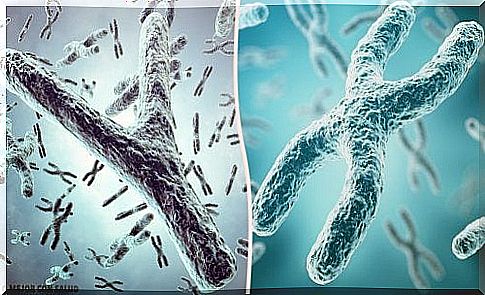What Are Telomeres?
Human aging is a complex process that science does not yet fully understand. One of the indicators of it is the length of the telomeres, which are in the final part of the chromosomes.

Telomeres are the extreme part of chromosomes and one of the most fascinating topics in science today. It is believed that they could provide great answers about complex and enigmatic processes such as aging, cancer and death.
Telomeres were discovered in the 1930s by Hermann Joseph Muller, in the company of Barbara McClintock. This earned them a Nobel Prize. In 2009, researchers Elizabeth H. Blackburn, Carol W. Greider, and Jack W. Szostak received another Nobel Prize in medicine for their advancements on the same topic.
Before it was believed that cells could divide infinitely. Then it was found that, in reality, cells could only divide a certain number of times and then died. The length of the telomeres determines how close or far the cells are from dying.
What are telomeres?
As we already noted, telomeres are the extreme part of chromosomes. The word comes from a Greek root that literally means ” final part .” It’s kind of like the plastic part at the end of shoelaces.
They are considered the protective shields of the DNA of our cells. This means that thanks to them, to a great extent, the chromosomes keep their structure stable. That stability allows cells to divide the way they should.
Telomeres play an important role in other functions. For example, thanks to them cells do not adhere to each other, and this is very important for life itself. Among other aspects, telomeres also allow us to establish how much an organism has aged .

Understanding telomeres
Cells constantly divide to regenerate the tissues and organs of our body. Each of these divisions causes telomeres to shorten a bit, which gradually get shorter. There is a point where they are so small that they can no longer do their job of protecting DNA.
When that point is reached it means that the cells have reached a state of senescence or old age and stop dividing. The length of telomeres is measured in a unit called a kilobase . At birth they have an average length of 11 kilobases; upon reaching old age the figure drops to 4.
The shortening of telomeres, and therefore their inability to protect DNA, seems to be the cause of aging and the appearance of age-related diseases. Between them:
- Cardiovascular problems
- Neurodegenerative diseases
- Infertility
- Diabetes
- Some types of cancer
Telomerase and youth
Telomeres inevitably shorten with each new cell division. However, this process can be moderated, thanks to an enzyme called telomerase. Telomerase is able to regenerate, to some extent, the length of these components of chromosomes.
Stem cells are a kind of guardian of practically all telomerase. However, the production of this regenerative enzyme decreases with age and this increases the rate of cellular deterioration. In theory, if telomerase production could be maintained, we would have eternal youth.
There is only one problem. There are some cells that have very long telomeres and produce a large amount of telomerase: cancer cells. They do not age and divide profusely. The bottom line, then, is that low telomerase production increases aging, but high production increases the risk of cancer.
So, in this regard, one of the problems of science is maintaining the generation of telomerase without causing cancer. There are already experiments with mice that have given encouraging results. It cannot be ruled out that the objective of adequately modulating telomerase will be achieved in the coming decades.

The influence of habits
Various studies have proven that habits also affect telomere shortening. As you can guess, the most harmful factors are:
- Consumption of sugary drinks
- Smoking
- Sedentary lifestyle
- Lack of adequate rest
- Contamination
Likewise, it has been found that chronic stress shortens telomeres and that cortisol – the stress hormone – reduces telomerase production. Regarding diet, there are no conclusive data, but a relationship between longer telomeres and the consumption of vegetables, fruits, Omega 3 and coffee has been found.
Exclusively breastfed babies in the first 4 to 6 weeks of life have also been observed to have longer telomeres at 4 years of age. On the other hand, shorter telomeres seem to be associated with emotional depression.









